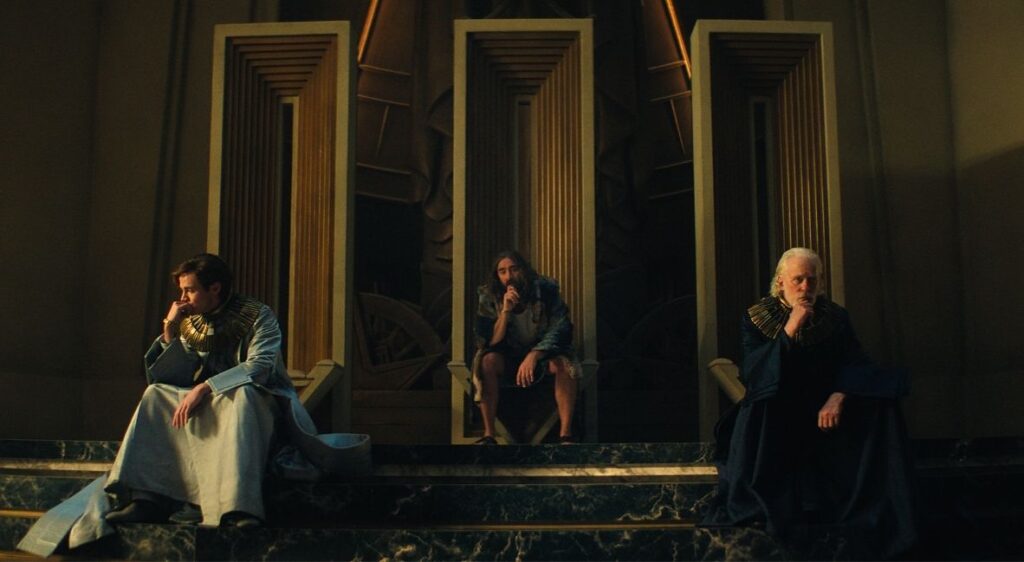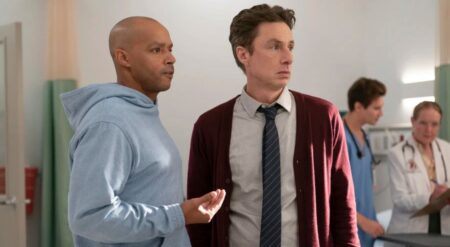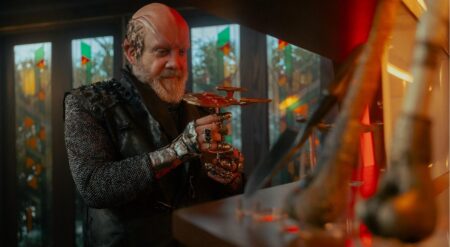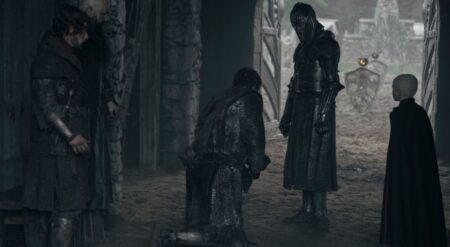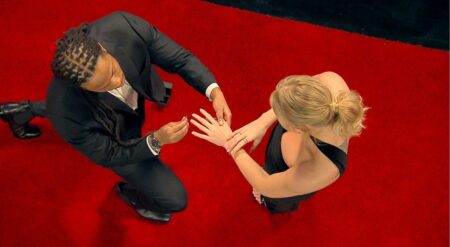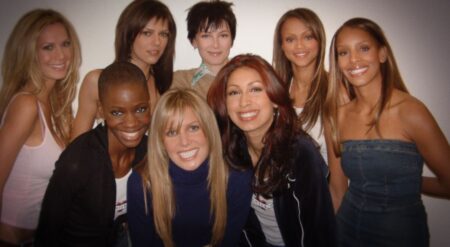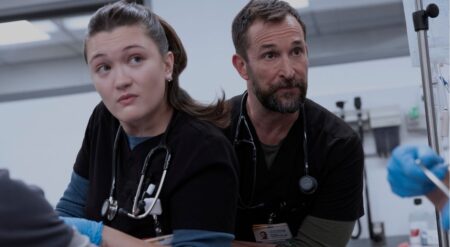I have a rule with TV shows: unless a season of television is really bad (and I mean really, really bad, like Rings of Power Season 1 bad), I’ll stick with it. Sometimes, it takes a show a second to find its feet, to understand what it wants to be. This is usually more common in shows that are just starting, but it also happens with more established shows, especially if the show in question is ambitious—and Foundation Season 3 is nothing if not ambitious.
Ambition covers many sins, but it’s not a cure-all. Foundation Season 3 is a good ten episodes of TV. But an uneven first half means that, even though the second half delivers, it’s not quite a great one.
Let’s get some stuff out of the way here. Foundation Season 3 has a lot going for it. There are a number of great actors, even in bit parts. I don’t think anyone in the season gives a bad performance, though certain actors certainly carry the series’ emotional and thematic weight on their shoulders.
Synnøve Karlsen and Lee Pace are easy standouts for the best of Foundation Season 3.
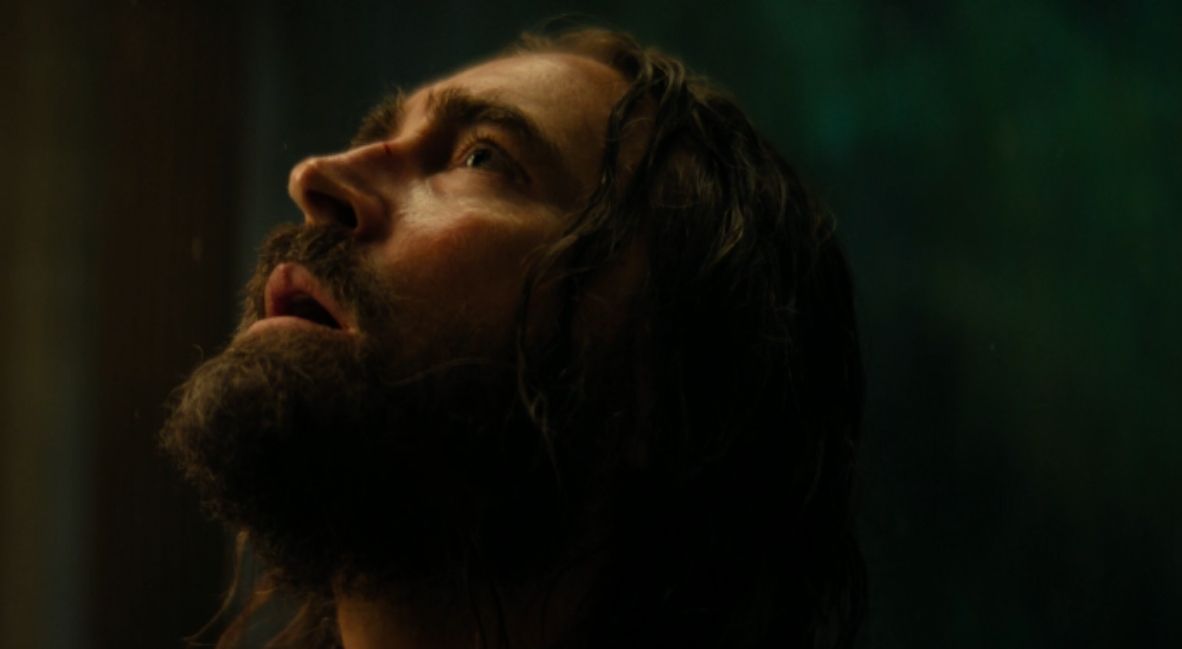
Terrence Mann gives us a nuanced, interesting Brother Dawn; Lee Pace’s Brother Day commands every scene he’s in, even when he’s something of a stoner bum; and Terrence Mann’s Brother Dusk is the season’s fulcrum, even though it may not initially feel like it. The Cleons, of course, are important, but it’s not just them. Laura Birn’s subtle, understated Demerzel commands scenes with little more than a look, Jared Harris’s Hari Seldon is never less than larger-than-life, and Lou Llobell does an admirable job of imbuing Gaal Dornick with a sense of both loss and sheer determination.
Even the new players are good. As Bayta, Synnøve Karlsen steals every scene she’s in; Cody Fern’s Toran Mallow has more depth than you might expect. And Pilou Asbæk is clearly having a blast as the Mule. And that’s good, because Foundation Season 3 is really all about the Mule.
I won’t belabor Foundation Season 3’s plot (I did a whole series of episode-by-episode reviews/recaps), but as the Foundation, Second Foundation, and Empire barrel toward conflict with the Mule (and in some cases, each other), things quickly become vastly more complicated than even Hari Seldon could have predicted. There are strange alliances, betrayals, deaths, unexpected twists, and for the first time, our heroes can’t just look at the Prime Radiant for the answers. They have to improvise, and it gets messy, both for our characters and for the show itself.
Apple TV+’s production value remains excellent, even if the end result is flawed.
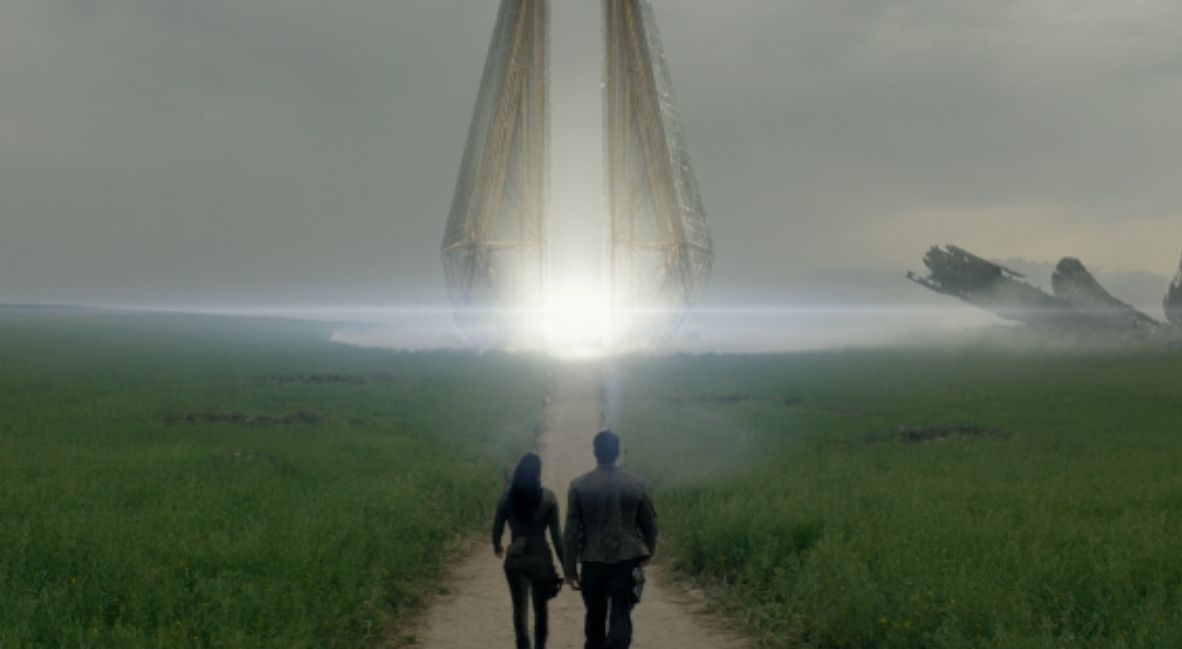
But the last few episodes, against all odds, pull it off. There are real stakes, the choices characters made a long time ago have consequences, and the season itself ends on a powerful cliffhanger. I was initially iffy on this season, but I think it ultimately makes it work, even if the end result is flawed.
And I’d be remiss if I didn’t mention Foundation’s production design. Sci-fi is a genre that needs to look good to sell its world, and Foundation always looks good. It’s one of those expensive shows that looks expensive. Good production design matters, and Foundation has it in spades.
But for all its strengths, and there are many, there are moments when Foundation Season 3 starts to buckle under its own ambition. Part of it is that there are simply too many characters, and we jump between them too often to really get a feel for who all of them are and what they want. By the end of the season, you have a good idea of what the deal with the central characters is, but Foundation spends the first half of its season feeling like it’s rushing to set everything up, and we don’t get as many character moments as it feels like we should.
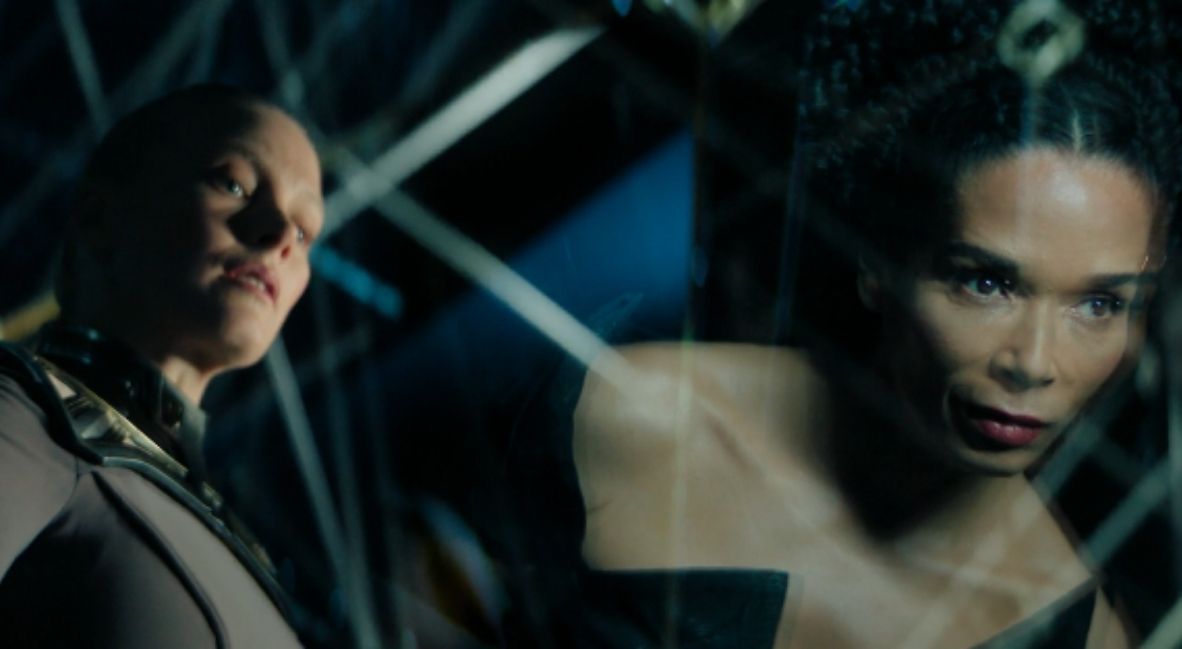
It also means that some characters are painfully underwritten. Pilou Asbæk does admirable work as the Mule, but he really doesn’t have a lot to work with. Mostly, he’s just menacing, more than a little crazy, and always seems to be a step ahead of Gaal and everyone else. And after a while, that’s just not that interesting.
The same is true of his abused balladier, Magnifico “Maggie” Giganticus (Tómas Lemarquis), Professor Ebling Mis (Alexander Sibbig), and several others. Mostly, these characters appear to solve problems, serve as plot points, or deliver exposition, and then they’re shunted to the background, often disappearing for long periods and never becoming full-fledged characters in their own right.
Which leads to Foundation Season 3’s other problem: there’s rarely room for things to breathe. That’s not to say there are none of them; Demerzel has some particularly great ones as she comes to terms with what she’s done in the name of the Empire.
Foundation Season 3 is propelled by its characters, but sometimes, it loses them, too.
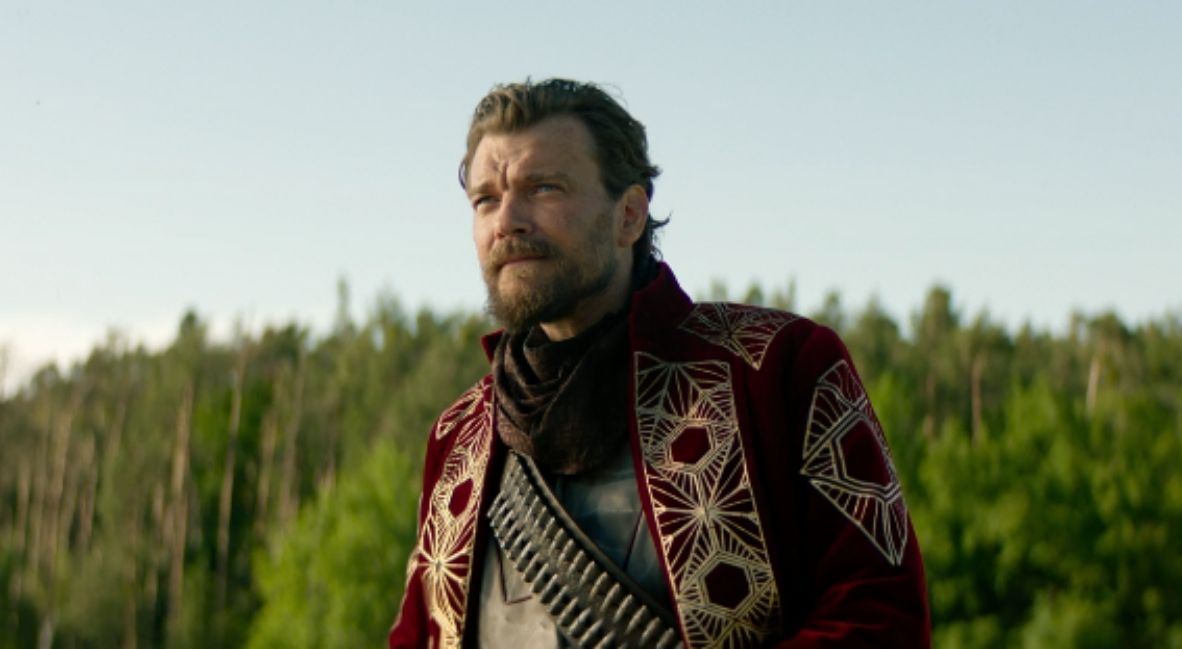
Gaal is a walking ball of hurt and need, but when these scenes are allowed to happen, they often do so so quickly that we aren’t allowed to sit with and absorb their impact. We also get a lot of scenes that are just short vignettes, and seemingly major characters can disappear for episodes at a time or serve as little more than cameos in certain scenes.
By the end of the season, this improves significantly as Foundation is able to resolve the issues that Season 3 sets up. But it takes a while to get there, and the first half of the season is much weaker than the second. It’s also worth noting that Foundation still doesn’t seem to trust its audience; every time Gaal narrates the obvious, the show is worse for it, and it happens a lot. Television is visual. Show us stuff, don’t rely on voice-over to make it obvious.
I’ve tried to avoid spoilers in this review (this season really is just about the conflict between Foundation, Empire, and the Mule, and to say anything beyond that will probably mess with your enjoyment of the show), but this decision does undermine key sequences where the visual imagery alone would be far more powerful than telling us what’s happening. I hope Foundation Season 4 will start trusting us more—It’s better when it does.
Season 3 succeeds far more than it fails, but Foundation Season 4 will have to trust the audience.

I don’t know where Season 4 goes from here, and it’s hard to talk about where Season 3 ends without spoilers, but it’s going to be very different than anything we’ve seen so far. Foundation needs to run with it and fully lean into what it could be.
This is an ambitious piece of television, and I have no doubt that it will continue to be true. But I hope it can balance its ambition while curbing its worst impulses. Can you imagine a season without any narration from Gaal? I believe it can be done! I believe we can live in that world! And if not, well… I’ll be right back here, yelling about it again.
I can’t deny that by the end, Foundation Season 3 was a very good season of TV. I often wish it had more time to breathe. Still, to its credit, Foundation does land the plane in a really satisfying way that often recontextualizes the stuff you’ve already seen and pays off everything it’s set up. And this season swings for the fences hard, which is excellent. I wish the flight there hadn’t been quite so bumpy.
Foundation Season 3 is streaming now on Apple TV+ with Season 4 already confirmed to be renewed by the streaming platform.
Foundation Season 3
TL;DR
Foundation does land the plane in a really satisfying way that often recontextualizes the stuff you’ve already seen and pays off everything it’s set up. And this season swings for the fences hard, which is excellent. I wish the flight there hadn’t been quite so bumpy.

